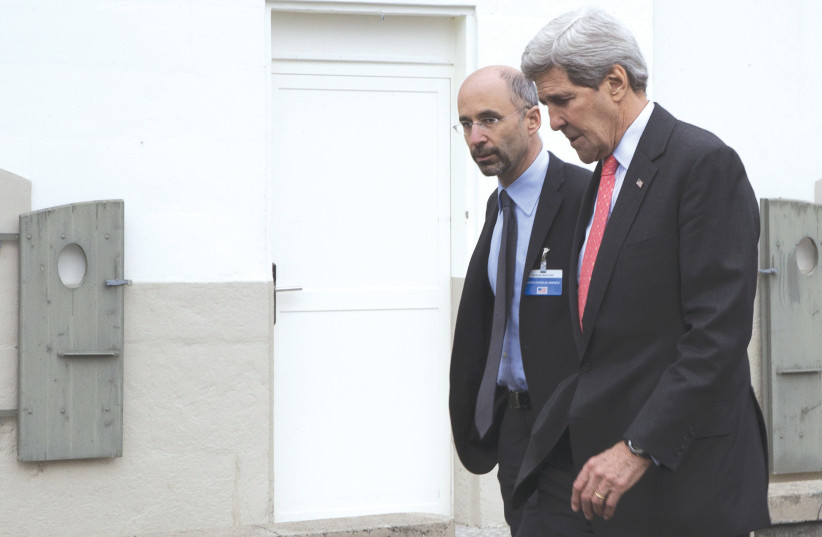Iran is not likely to cross the nuclear threshold in the near future, former Israel atomic energy chief Gideon Frank said on Tuesday.
Speaking in Herzliya, Frank said, “The question of whether Iran will decide to go for a nuclear weapon is very complicated. My opinion is that they will not.”
“This is because they have two things to lose. First, if they do so they will have to exit the NPT [Nuclear Non Proliferation Treaty] which will put them in a similar place as North Korea…Second, I do not think Iran really would ever intend to actually use a nuclear weapon,” suggesting Tehran would use it to deter attempts at regime change and to embolden its regional terror.
At the same conference, Defense Ministry Director-General Amir Eshel asked whether Israel has the capability to strike and set back Iran’s nuclear program, saying, “The current government has made a paradigm shift on this issue, placing a much greater emphasis on building much more massive, substantial and relevant forces according to the existing threat.”
“There are a diverse number of issues. We are not only dealing with the Iranian nuclear program. We are dealing with a system-wide clash with Iran and we need to assume that there could be a region-wide war,” he warned.

Eshel summed up that the IDF does have a sufficient attack capability for Iran, but that the questions are broad strategy, interests and costs.
Former IDF chief Gadi Eisenkot said that Israel’s security forces’ brave actions against Iran to date were the main reason Iran has failed so far to obtain nuclear weapons.
Discussing regional issues, former national security council chief Giora Eiland said that if Israel is not careful, the Saudis could decide to drop normalization efforts with the Jewish state and instead cut a deal with Iran.
Eiland said that too many analysts believe that the Saudis’ current need for an alliance with either the US or Israel or both in order to defend themselves from Iran is a permanent feature of international relations.
Instead, he said the entire balance of geopolitical relations between the Saudis and Iran could change in an instant.
Former Mossad chief Tamir Pardo asked the audience “do the Jews want one state with the Palestinians?”
He also said that by failing to resolve the Palestinian issue Israeli policies have exacerbated a rift with the US Democratic Party.
Pardo pointed out that internal processes in the US might be to Israel’s disadvantage. As the country becomes more multi-cultural it loses some of the Judeo-Christian character which has dominated policy until today.
However, he said Israel’s ability to resolve or not resolve the Palestinian issue can heavily impact the broader trends of how the Democratic Party feels about Israel.
Referring both to the issue with the Palestinians and other social conflicts in Israel, Eisenkot said that the state must be able to have control over demolishing illegal residences in a variety of areas, whether that means the Jewish Homesh outpost in the West Bank, illegal Beduin building in the South or illegal Arab building in the Galilee.
He also said that the country must base important decisions on a broad vision of the national interest and not on small-time politics.
